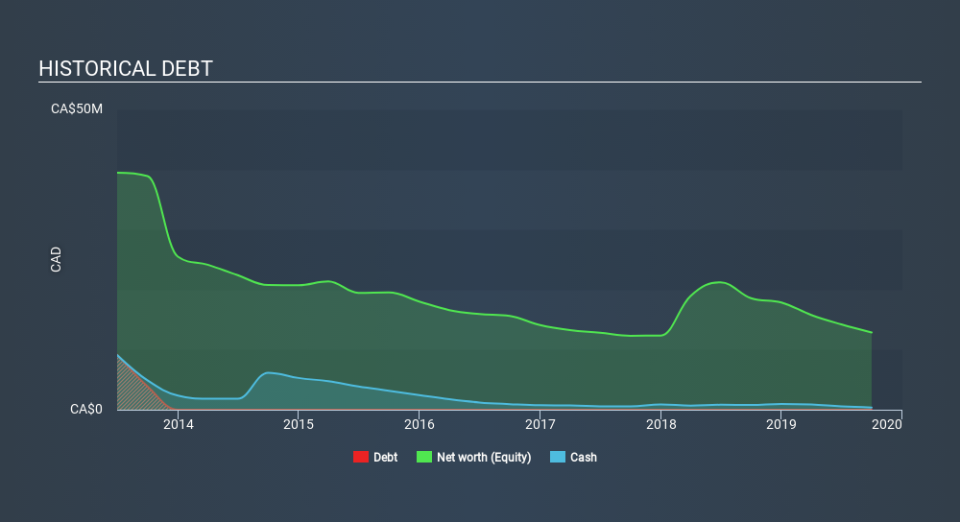We're Keeping An Eye On TVI Pacific's (CVE:TVI) Cash Burn Rate

There's no doubt that money can be made by owning shares of unprofitable businesses. For example, biotech and mining exploration companies often lose money for years before finding success with a new treatment or mineral discovery. But while the successes are well known, investors should not ignore the very many unprofitable companies that simply burn through all their cash and collapse.
So should TVI Pacific (CVE:TVI) shareholders be worried about its cash burn? In this report, we will consider the company's annual negative free cash flow, henceforth referring to it as the 'cash burn'. Let's start with an examination of the business's cash, relative to its cash burn.
Check out our latest analysis for TVI Pacific
When Might TVI Pacific Run Out Of Money?
A cash runway is defined as the length of time it would take a company to run out of money if it kept spending at its current rate of cash burn. When TVI Pacific last reported its balance sheet in September 2019, it had zero debt and cash worth CA$377k. In the last year, its cash burn was CA$499k. That means it had a cash runway of around 9 months as of September 2019. That's quite a short cash runway, indicating the company must either reduce its annual cash burn or replenish its cash. The image below shows how its cash balance has been changing over the last few years.
Can TVI Pacific Raise More Cash Easily?
Issuing new shares, or taking on debt, are the most common ways for a listed company to raise more money for its business. Commonly, a business will sell new shares in itself to raise cash to drive growth. We can compare a company's cash burn to its market capitalisation to get a sense for how many new shares a company would have to issue to fund one year's operations.
TVI Pacific's cash burn of CA$499k is about 5.1% of its CA$9.8m market capitalisation. Given that is a rather small percentage, it would probably be really easy for the company to fund another year's growth by issuing some new shares to investors, or even by taking out a loan.
How Risky Is TVI Pacific's Cash Burn Situation?
Because TVI Pacific is an early stage company, we don't have a great deal of data on which to form an opinion of its cash burn. Having said that, we can say that its cash burn relative to its market cap was a real positive. Even though we don't think shareholders should be alarmed by its cash burn, we do think they should be keeping a close eye on it. Separately, we looked at different risks affecting the company and spotted 4 warning signs for TVI Pacific (of which 1 is a bit concerning!) you should know about.
Of course TVI Pacific may not be the best stock to buy. So you may wish to see this free collection of companies boasting high return on equity, or this list of stocks that insiders are buying.
Love or hate this article? Concerned about the content? Get in touch with us directly. Alternatively, email editorial-team@simplywallst.com.
This article by Simply Wall St is general in nature. It does not constitute a recommendation to buy or sell any stock, and does not take account of your objectives, or your financial situation. We aim to bring you long-term focused analysis driven by fundamental data. Note that our analysis may not factor in the latest price-sensitive company announcements or qualitative material. Simply Wall St has no position in any stocks mentioned. Thank you for reading.

 Yahoo Finance
Yahoo Finance 
